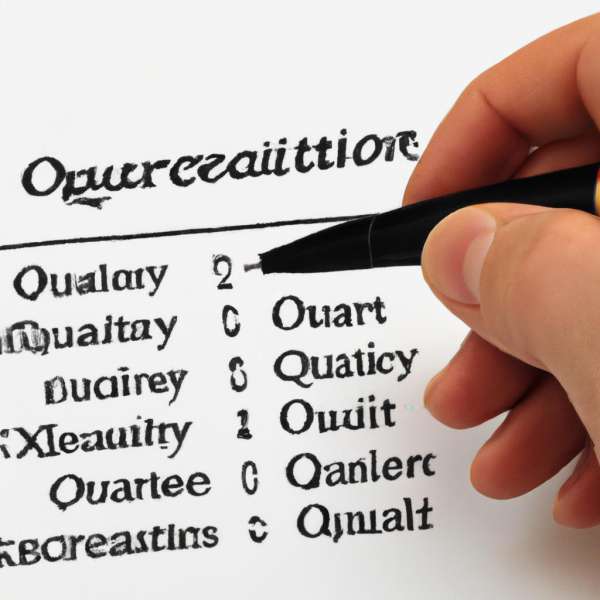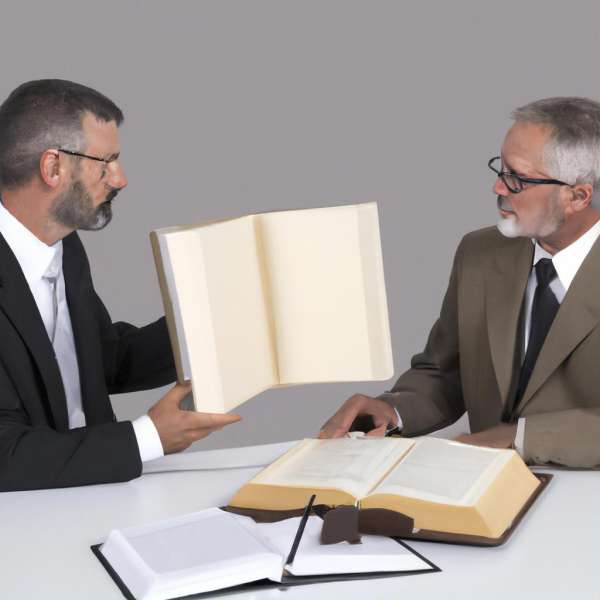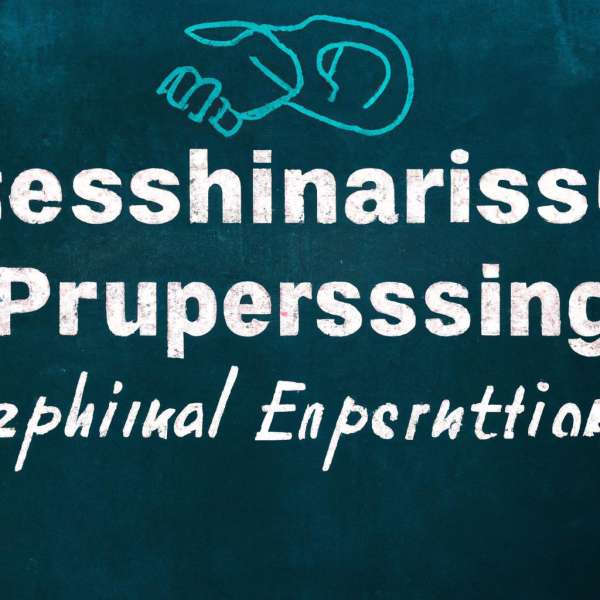Choosing an executor for your will is one of the most important decisions you will make when planning your estate. This individual will play a crucial role in ensuring that your final wishes are honored and that your assets are managed and distributed according to your instructions. Yet, despite its significance, the task of selecting an executor can often feel daunting—like trying to navigate a maze without a map. With countless factors to consider, from personal qualities to legal responsibilities, it’s essential to approach this choice with care and thoughtfulness. In this article, we’ll guide you through the process of selecting the right executor for your will, offering insights and tips to help you make an informed decision that aligns with your values and intentions. Whether you’re drafting your first will or reevaluating an existing one, understanding the role and responsibilities of an executor is key to finding the perfect fit for your legacy.
Selecting the Right Qualities in an Executor
Choosing an executor for your will is akin to selecting a captain for a ship—you need someone who can navigate through turbulent waters with skill and confidence. The executor will be responsible for ensuring that your final wishes are respected and that your estate is managed efficiently. Consequently, it’s vital to consider several qualities that make an individual effective in this role.
First and foremost, **trustworthiness** is paramount. This person will be handling your finances and personal affairs after you’ve passed, so ensuring they have integrity is non-negotiable. Look for someone who has a solid reputation within your family or community. Additionally, consider their **organizational skills**, as they will need to manage documents, deadlines, and numerous details surrounding your estate. An executor who can handle a variety of tasks effectively can significantly ease the burden on your loved ones.
Another critical quality is **communication skills**. The executor will need to interact with beneficiaries, creditors, and possibly even the court, so being able to convey information clearly and compassionately is essential. Furthermore, they should possess a certain level of **financial knowledge** or be willing to seek professional assistance when necessary. An executor who understands basic financial principles will be better equipped to make informed decisions regarding the estate.
| Quality | Description |
|---|---|
| Trustworthiness | Integrity to handle sensitive affairs responsibly. |
| Organizational Skills | Able to manage multiple tasks and deadlines efficiently. |
| Communication Skills | Can convey information clearly to family and stakeholders. |
| Financial Knowledge | Understands basic finance and seeks help when needed. |

Assessing the Legal and Financial Expertise Required
Choosing an executor for your will is a crucial decision, particularly when it comes to assessing the necessary legal and financial expertise required for the role. An ideal executor should possess a solid understanding of estate laws and the ability to navigate the often-complex financial landscape that comes after someone’s passing. Here are several key qualifications to consider:
- Legal Knowledge: Familiarity with probate laws and legal processes associated with estate administration is essential. An executor must understand how to manage varied assets and comply with state-specific requirements.
- Financial Acumen: The ability to handle financial matters, including taxes, debts, and property valuation, is vital. An executor should be capable of preparing taxes for the estate and fulfilling other financial obligations.
- Organizational Skills: Executors are often required to manage and organize numerous documents, reports, and communications. Their ability to stay organized ensures smooth handling of the estate.
- Problem-Solving Skills: Inheritances can sometimes lead to conflicts among heirs. An executor’s ability to mediate disputes or navigate complications is invaluable.
Additionally, consider whether your chosen executor is willing to seek professional help when needed. A network of trusted advisors, such as financial planners or estate attorneys, can provide essential support and guidance throughout the administration process. The following table outlines potential areas of expertise required for the role:
| Area of Expertise | Importance |
|---|---|
| Estate Law | Critical – Ensures compliance with regulations |
| Financial Management | Very Important – Helps manage debts and assets |
| Organization | Essential – Facilitates efficient estate processing |
| Mediation Skills | Valuable – Aids in resolving disputes among heirs |
Ultimately, selecting the right executor means balancing personal attributes with professional skills. Look for someone who not only has the requisite experience but also embodies the trustworthiness and judgment necessary to fulfill the responsibilities entrusted to them. Remember, an executor is the embodiment of your wishes after you’re gone; choosing wisely can provide peace of mind for both you and your loved ones.

Understanding Personal Relationships and Trustworthiness
When selecting an executor for your will, the foundation of your choice should rest upon a deep understanding of personal relationships and the inherent trustworthiness of candidates. An executor is tasked with fulfilling your last wishes and managing the distribution of your assets, making it crucial to choose someone who embodies integrity and responsibility. Consider these factors:
- Reliability: Ensure that the individual has a proven track record of following through on commitments. This trait is vital, as the responsibilities of an executor require diligence.
- Emotional Stability: The probate process can be demanding and emotionally charged. An executor should be someone who can navigate these challenges without becoming overwhelmed.
- Communication Skills: A good executor needs to communicate effectively with the beneficiaries and other stakeholders. This includes keeping everyone informed about the estate’s administration progress.
You may also want to consider the relationship dynamics within your circle. Trust is a cornerstone, yet it can be easily influenced by past experiences and interpersonal conflicts. Executing a will can sometimes lead to disputes among beneficiaries. Therefore, the chosen executor should not only be trustworthy but should also possess strong conflict resolution skills. Here’s a comparison of potential candidates:
| Name | Relationship | Trustworthiness Rating | Conflict Management Skills |
|---|---|---|---|
| Jane Doe | Sister | High | Excellent |
| John Smith | Close Friend | Medium | Good |
| Emily Johnson | Child | Medium | Poor |
Ultimately, trustworthiness is not just a personal quality but a reflection of the individual’s ability to manage responsibilities without compromising your wishes. Choosing wisely among those you know intimately can help ensure that your estate’s administration is conducted smoothly and respectfully, upholding the legacy you leave behind.
Communicating Your Wishes Clearly to Your Executor
Effective communication with your executor is crucial to ensuring that your wishes are honored after your passing. Openly discussing your intentions and preferences can help eliminate confusion and pave the way for a smoother administration of your estate. To facilitate this process, consider the following strategies:
- Conduct a Formal Meeting: Schedule a dedicated time to meet with your executor, allowing them to ask questions and clarify expectations. This should be a two-way dialogue where both parties feel comfortable discussing important topics.
- Provide Detailed Instructions: Draft a comprehensive letter or document outlining your wishes in detail. Include specific instructions regarding asset distribution, care for dependents, and any other directives you deem important.
- Update Regularly: Revisit your instructions periodically, especially after significant life changes (e.g., marriage, divorce, birth of children). Keeping your executor informed of any alterations ensures that your last wishes remain current.
Additionally, consider maintaining an organized file or digital storage of essential documents that your executor might need, such as:
| Document Type | Description |
|---|---|
| Will | Your legal document stating how you want your assets distributed. |
| Trust Documents | If applicable, include details regarding any trusts you’ve established. |
| Asset Inventory | A list of your assets, including real estate, bank accounts, and valuable personal property. |
| Beneficiary Information | Details on who will inherit, including names and contact information. |
Lastly, encouraging your executor to ask questions and express concerns will foster a collaborative relationship. This proactive approach not only fortifies your intentions but also provides your chosen executor with the confidence to make decisions aligned with your values and desires. Clear communication is the cornerstone of a well-executed estate plan.
Final Thoughts
In the intricate tapestry of estate planning, choosing the right executor for your will is akin to selecting a skilled conductor for an orchestra. This decision carries significant weight, as your executor becomes the custodian of your final wishes and the navigator through the complexities of your estate. By considering qualities such as trustworthiness, diligence, and emotional resilience, you can sculpt a future that honors your legacy and protects your loved ones.
As you embark on this vital decision-making process, remember that an executor’s role goes beyond mere logistics; it’s a significant personal commitment. Take time to reflect on your options, communicate openly with potential candidates, and don’t hesitate to seek professional guidance when needed.
Ultimately, the right executor can transform a daunting experience into a harmonious journey, allowing your wishes to be carried out with care and precision. May you find peace in your choice, knowing you’ve laid a strong foundation for the legacy you wish to leave behind. Your story is unique—ensure it continues to resonate even after the final page is turned.


